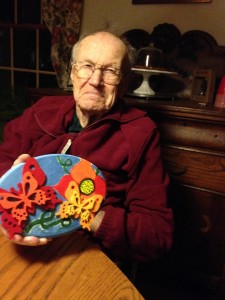In 2011, President Obama proclaimed November as National Family Caregivers month to “pay tribute to the individuals throughout America who ensure the health and well-being of their relatives and loved ones.” The proclamation honors “the tireless compassion of Americans who heal, comfort, and support our injured, our elders, and people with disabilities. This month and throughout the year, let the quiet perseverance of our family caregivers remind us of the decency and kindness to which we can all aspire.”
As a society, it’s easy to pay lip-service to the folks in the trenches of caregiving. Why wouldn’t the nation honor the 40 million family caregivers in the U.S. who, in 2013, provided an estimated 37 billion hours of assistance to an adult with activities of daily living? According to the AARP, the estimated economic value of their unpaid contributions was approximately $470 billion in 2013.
But even the words “tireless” and “quiet perseverance” connote martyrdom, sacrifice and isolation. These attributes don’t always make the best caregivers and they devalue the all-important first rule of caregiving, which is to ask for help. This year’s theme is, Take Care to Give Care, acknowledging the fact that caregiving, while rewarding, is physically and emotionally demanding. By virtue of a caregiver’s role, the caregiver is at a higher risk of health issues.
Caregivers, celebrate yourself this month by recognizing the need to Take Care to Give Care, in whatever way makes sense to you. In the words of a fellow caregiver, “I’ve become very good at asking for help, in putting necessity first and pride last.” Successful caregiving takes a team. Know your capabilities. Spend time putting a network of support in place, to have people you can call on in an emergency. People around you likely want to help, but they need to be told specifically what type of help you need and when you need it.
Some additional reminders from the Caregiver Action Network:
- Caregiving can be a stressful job. Most family caregivers say they feel stressed providing care for a loved one. With all of their caregiving responsibilities – from managing medications to arranging doctor appointments to planning meals – caregivers too often put themselves last.
- The stress of caregiving impacts your own health. One out of five caregivers admit they have sacrificed their own physical health while caring for a loved one. Due to stress, family caregivers have a disproportionate number of health and emotional problems. They are twice as likely to suffer depression and are at increased risk for many other chronic conditions.
- Proper nutrition helps promote good health. Ensuring that you are getting proper nutrition is key to help maintain your strength, energy and stamina, as well as strengthening your immune system. Maintaining a healthy diet is one of the most powerful things you can do to take care of yourself and keep a positive attitude overall.
- Ensuring good nutrition for your loved one helps make care easier. As many as half of all older adults are at risk for malnutrition. Good nutrition can help maintain muscle health, support recovery, and reduce risk for re-hospitalization – which may help make your care of a loved one easier.
- Remember: “Rest. Recharge. Respite.” People think of respite as a luxury, but considering caregivers’ higher risk for health issues from chronic stress, those risks can be a lot costlier than some time away to recharge. The chance to take a breather, the opportunity to re-energize, is vital in order for you to be as good a caregiver tomorrow as you were today.



